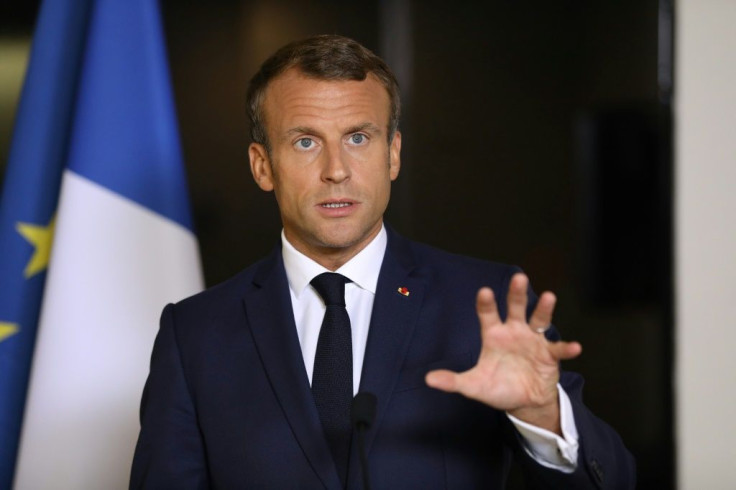France's 2020 Budget Cuts Taxes In Bid To Placate 'Yellow Vests'

France's government unveiled a draft 2020 budget on Thursday with more than nine billion euros in tax cuts for households as it hopes to move on from on from roiling "yellow vest" protests while still cutting the deficit to within EU limits.
The "social crisis" brought on by the protests, as well as a slowdown in global economic growth, "led us to make decisions that encourage investment and consumption", Economy Minister Bruno Le Maire said as he unveiled the draft 2020 budget.
The draft budget, which will be officially presented to the cabinet on Friday, will cut taxes for households by 9.3 billion euros ($10 billion) and businesses by more than one billion euros.
That includes five billion euros in tax cuts for some 12 million households already promised by President Emmanuel Macron, the result of a "great national debate" he held to try to address the ongoing protests.
Macron, who swept to the presidency in 2017 with a pledge to get the country back on a solid financial footing, was caught short by the "yellow vest" movement which accused the former investment banker of ignoring the day-to-day struggles of many French.
After months of street protests that often spiralled into rioting and battles with police, Macron unveiled tax cuts, wage increases and other measures for low-income households.
The measures are expected to push this year's deficit to 3.1 percent of gross domestic product, making France the only eurozone member to exceed the bloc's three percent limit -- even as countries like Germany, the Netherlands and Portugal are likely to post surpluses.
The government forecast next year's deficit ratio falling to 2.2 percent, still short of the previous goal of two percent.
And France's debt mountain will barely budge next year from 98.7 percent of GDP -- far above the 60 percent or less demanded of eurozone members.
The money for the yellow vests -- who are also demanding improved public services -- also makes it unlikely Macron will honour his campaign pledge of balancing the government's books in 2022.
"The government abandoned its strategy of reducing France's structural deficit in the aftermath of the yellow vests," Charles de Courson, an independent lawmaker respected on both the right and left for his public finance acumen, told AFP.
Nevertheless, the fiscal relief has helped sustain French growth, expected to reach 1.4 percent this year even as EU economic powerhouse Germany risks falling into recession. However the government revised its growth forecast for next year down to 1.3 percent.
Germany urged to invest
Le Maire called on Germany to invest to prevent the flagging eurozone economy from getting worse.
"Germany must invest and invest now, the sooner the better," he said.
"Do not wait for the economic situation to worsen to make the necessary decisions."
He also defended European Central Bank chief Mario Draghi, who has come under heavy criticism in some circles, including Germany, for unleashing a huge stimulus package aimed at propping up the eurozone economy.
"We support the courageous decision made by the ECB and its president," he said.
Budget Minister Gerald Darmanin said this week that the creation of a pay-as-you-go income tax system, which did away with self-reporting months after the fiscal year-end, had brought a two-billion-euro windfall to state coffers.
The government has already indicated that defence and security spending will increase next year, offset by cuts at the finance and budget ministries, and reduced funds for local authorities.
Yet Macron has abandoned his pledge of slashing 50,000 central government jobs during his five-year term, saying that only 10,500 would be now be cut.
"France has chosen the right economic policies, even if it was forced to do so" because of the yellow vest revolt, said Philippe Waechter, chief economist at Ostrum Asset Management in Paris.
"We have a European economy that's slowing quite rapidly, and you're not going to reverse this by cutting back even more," he told AFP.
© Copyright AFP 2024. All rights reserved.





















